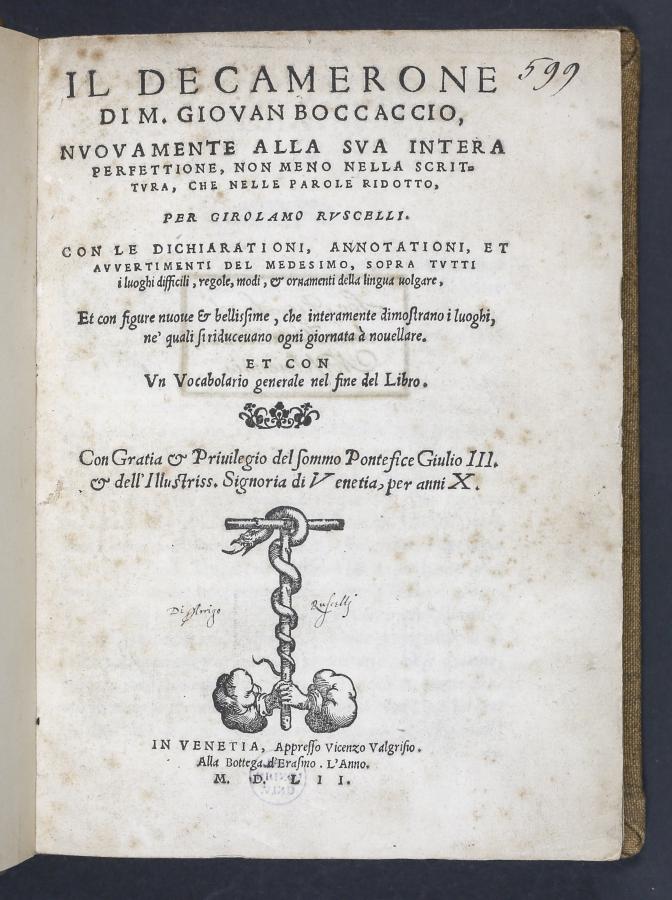
Giovanni Boccaccio
Venice: V. Valgrisi, 1552
Be [Boccaccio] SR
Shakespeare’s reading included vernacular languages other than English. He could have known Giovanni Boccaccio’s Decameron, one hundred stories in various genres taken from a wide range of sources, either via Antoine le Maçon’s French translation (1545) or in the original Italian; we know that he did not rely entirely on William Painter’s English version because Painter did not include all the stories that Shakespeare used. Boccaccio’s stories are told within a frame narrative of ten nobles relating a story each over ten days. The ninth story of the second day is the strongest candidate for the source of Cymbeline, in which a man wagers on his wife’s chastity and is deceived by the villain’s wiles. Most strikingly, the ninth story of the third day is the main source of All’s Well that Ends Well, about a woman who is spurned by her unwilling husband but by her cleverness meets the seemingly impossible conditions he sets for reconciliation